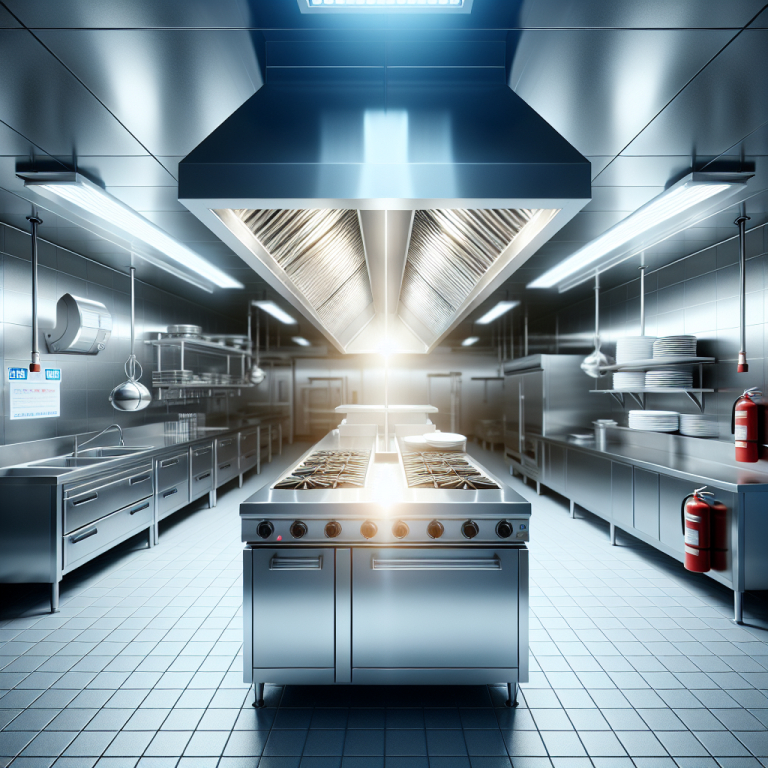Mastering Compliance with Essential Hood Cleaning Regulations Guide
Understanding the Complexities of Hood Cleaning Regulations
As a restaurant owner or operator in Toms River, NJ, maintaining a clean and safe kitchen isn’t just good practice – it’s a legal requirement. From local codes to federal mandates, the world of hood cleaning regulations can seem like a tangled web. Here’s a guide to help you navigate these requirements, ensuring your kitchen operates at peak performance while staying compliant.
Why Hood Cleaning Is Crucial
Commercial kitchen hood cleaning, particularly restaurant hood cleaning, is vital for several reasons. Firstly, kitchen exhaust systems accumulate grease, leading to potential fire hazards. Regular maintenance reduces the risk of fire, ensuring the safety of staff and patrons. Additionally, grease buildup can affect air quality, having adverse effects on your kitchen’s ventilation. Adhering to proper hood cleaning practices is essential to meet health and safety regulations.
An Overview of Local Regulations in New Jersey
In New Jersey, hood cleaning regulations are stringent, with Toms River NJ being no exception. Local authorities often perform inspections to ensure compliance with established codes. At the state level, the New Jersey Uniform Fire Code (NJ UFC) mandates commercial kitchen owners to schedule regular hood cleaning. Here’s what you need to know:
- Investing in certified professionals for Jersey Hood Cleaning services is crucial for compliance.
- Maintaining records of all cleaning activities can demonstrate compliance during inspections.
- The frequency of cleanings depends on the type and volume of cooking, ranging from quarterly to bi-annually.
State-Level Guidelines You Must Follow
The New Jersey Division of Fire Safety enforces state regulations through NFPA (National Fire Protection Association) guidelines. Among various standards, NFPA 96, which focuses on ventilation control and fire protection of commercial cooking operations, is crucial for restaurant hood cleaning services in New Jersey. Key directives include:
- Installing proper grease removal devices within exhaust systems.
- Ensuring that exhaust fans are operational and all filters are clean.
- Conducting regular inspections of hood systems by certified professionals.
Staying compliant with these standards is more than ticking off a checklist; it’s about embodying a culture of safety.
Federal Standards Impacting Hood Cleaning
While local and state regulations provide specific guidelines for commercial kitchen operations, federal laws like the Occupational Safety and Health Administration (OSHA) standards also impact hood cleaning requirements. Federal guidelines encompass workplace safety, including air quality and the safe operation of exhaust systems.
Compliance at a federal level requires that:
- Workers are trained in the safe operation and maintenance of hood and exhaust systems.
- Personal protective equipment (PPE) is used during cleaning processes to safeguard employees.
The penalties for failing to comply with these federal regulations can be severe, including fines and potential operation shutdowns. Consistent adherence helps you avoid these pitfalls while further ensuring a safe working environment.
Challenges in Meeting Regulations
Navigating the maze of hood cleaning regulations comes with its challenges. Variations in requirements across local, state, and federal levels can lead to confusion. The complexity of the codes, coupled with the busy schedule of running a restaurant, makes it easy to overlook essential compliance issues. Here’s how to mitigate these challenges:
- Consider hiring a professional consultant who specializes in commercial kitchen compliance.
- Automate scheduling for hood cleaning services to ensure consistency and adherence to timelines.
- Invest in training for staff to recognize early signs of hood and exhaust system issues.
Conclusion: Prioritize Compliance and Safety
Operating a restaurant in New Jersey requires diligent attention to hood cleaning regulations. By keeping up with local, state, and federal standards, you ensure the safety of your establishment and those in it. Investing in professional Jersey Hood Cleaning services is a proactive step in achieving this goal. Reliable hood cleaning not only protects against the dangers of grease buildup and fire but also fortifies your kitchen’s ventilation system, promoting a healthier workplace.
Ultimately, staying informed and prepared will save you time, money, and potential legal troubles, allowing you to focus on what you do best: delivering excellent culinary experiences. Make a commitment to prioritize safety and compliance, and rest assured that your commercial kitchen is up to code in Toms River, NJ, and beyond. Your efforts in adhering to these regulations are instrumental in safeguarding your business’s reputation and success.







